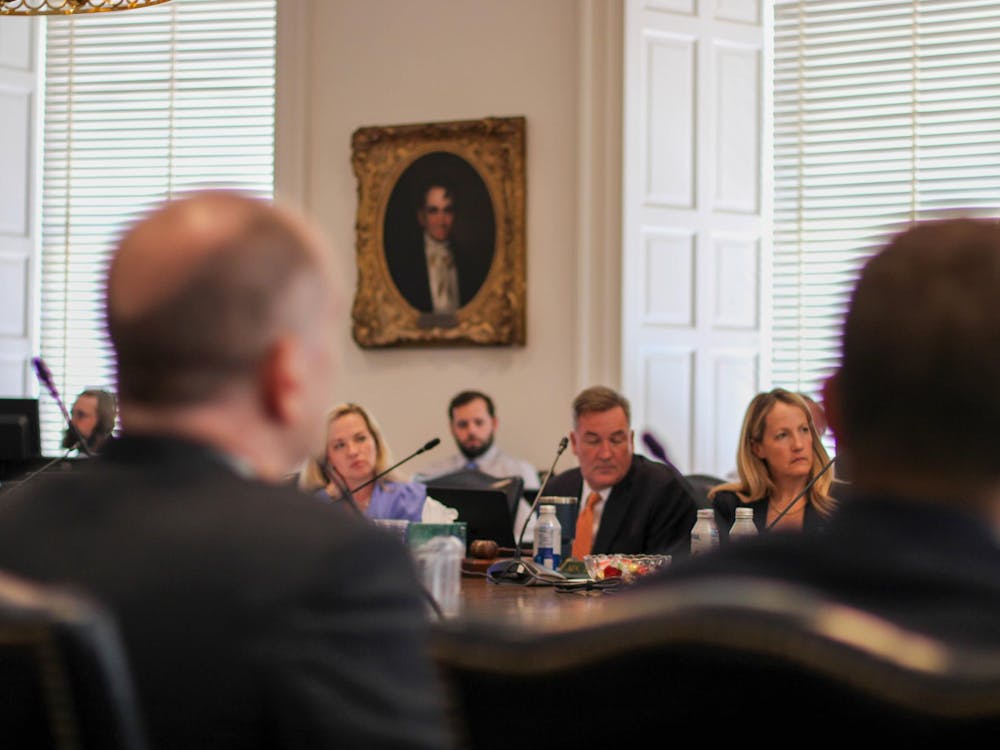A religious studies instructor at Missouri State University is defending his decision to invite a former Ku Klux Klan leader to speak to his class two years ago. The instructor, David Embree, is facing scrutiny now because the speaker, Frazier Glenn Cross Jr., is now the prime suspect for the murder of three people at Jewish centers in Kansas City Sunday.
According to The Chronicle, Embree says he invited Cross because he wanted his students to learn about “the danger of hateful worldviews,” though he admits the question of whether people with radical views are appropriate classroom speakers is a difficult one.
Embree’s invitation does not necessarily indicate he supports Cross’s views, which are racist and anti-Semitic. But the students in the class may have felt uncomfortable or intimidated while listening to the speech, especially if the students were members of the minority groups Cross targeted. Such feelings of intimidation would likely dissuade students from contributing to the class discussion.
There are alternative ways to educate students about extremist viewpoints. The instructor could have had his students read an essay by a white supremacist and conduct a discussion in which the class analyzed the author’s arguments. Embree said in a formal statement, “the ‘nice’ students I tend to get would not believe what their textbook or I told them about the hatred and venom of these groups unless they encountered one of them.” This logic, however, does not put enough faith in the students, and ignores the fact that some lessons about institutional hatred cannot possibly be taught with a face-to-face encounter. For instance, some extremist groups like the Nazis, it is not possible to present people with a real-life example because the Holocaust occurred more than half a century ago. But it is possible to educate students about the event and the bigotry that motivated it, by reading essays by Adolf Hitler, or by viewing his speeches. Students have the ability to assess the legitimacy of primary and secondary source material with the guidance of the instructor’s expertise.
Professors should not give speakers who hold hurtful, extremist viewpoints the opportunity to direct their vitriol at students. The face-to-face interaction has the potential to disturb or even traumatize students unnecessarily.
Whether or not Cross is guilty of shooting the people in the Jewish center is yet undetermined. But the Ku Klux Klan does have a history of violent activity, and Cross endorsed violence when he spoke to the class. Bringing speakers who promote violence along with radical agendas to classroom risks student safety, especially if a student were to vocally disagree with the speaker during the class.
To learn about and discuss radical viewpoints can be beneficial to academic discourse, but in the classroom space, it is best to keep those viewpoints physically separated from the people who hold them. In an earlier editorial, we supported the University of Colorado’s decision to invite Condoleezza Rice to speak about the civil rights movement, despite student protest. Rice may be a controversial figure because of her role in the Bush administration, but her visit will be beneficial because it will encourage discussion, without directing hatred toward particular groups of people. A speaker’s rejection is warranted when said speaker disseminates hateful or threatening viewpoints toward a certain group, since this speaker’s presence will either stifle discussion, put students in a danger or both. In this particular case at Missouri State University, it would have been better not to put a face to a name.






